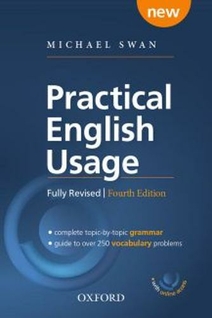
How easy it would be, I thought, to turn my card index into a book. Time went by, and after 15 years or so in classrooms I moved into full-time writing. So information of this kind also went into the card index. If a student says ‘My sister is hairdresser’, the information about article use that the student needs depends partly on whether he or she is, say, a Russian or French speaker. It was also important to know about the problems that speakers of particular languages have with English. Intermediate and advanced students don't generally want to know how gerunds, prepositions or past tenses are used they want to know why this gerund, this preposition or this past tense can't be used in this situation. My aim was above all to produce something different from a standard language manual: not page after page covering the whole of a topic, but single separate answers to single separate questions. As time went on, I wrote these answers on index cards, and put them in the staffroom of the school where I taught, with an invitation to other teachers to contribute their own knowledge and insights. I made notes of my students’ recurrent questions, and spent a good deal of my spare time in libraries, looking through the classical reference grammars and building up a set of clear simple answers. Better explanations could generally be found buried in a larger reference work but you had to dig for it.

There were one or two books around with titles like ‘Common Errors in English’ or ‘A Student's Handbook of Language Problems’, but these were not very comprehensive, not always clear, and often inaccurate. Learners’ grammars and dictionaries often had nothing to say about the kind of detailed point that lay behind a student’s problem, or they simply addressed it briefly in a footnote, or gave it a line inside a larger entry. The trouble was that the right kind of book didn’t exist. So as I developed a professional conscience, I took to admitting when I didn't know the answer (‘Even your teacher doesn’t know everything’), promising to find out, and hoping that they would forget. In fact, as I slowly came to realise, it's no use trying to analyse language on your feet: your first answer is always wrong. When I was asked about the difference between one structure and another, I would either produce meaningless phrases like ‘It’s a matter of style / a question of emphasis’, or tell them what turned out on reflection to be lies.

Working out the rules on the spot was generally useless. However, when I corrected the students’ homework, the books often didn’t explain why something was wrong and the students had an irritating habit of asking questions in class which I couldn't answer. Coursebooks and grammar practice materials gave some of the basic information that my students and I needed, and this helped a good deal. I started in ELT as an untrained teacher who knew nothing about English except how to speak it.


 0 kommentar(er)
0 kommentar(er)
